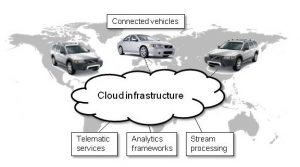
To be successful in the increasingly competitive consumer vehicle market, automotive manufacturers must be highly responsive to customer needs and market trends, while responding to the challenges of climate change. One key to achieving this is to promote knowledge-driven product development through large scale collection of data from vehicles in use, to capture customer needs and to gather performance data and statistics. In the testing and validation phases of automotive development, large volumes of measurement data and diagnostic data are being collected through powerful data loggers and diagnostic systems. With sophisticated telematics services enabling wireless collection of data from test vehicles from all over the world, the volume of data collected quickly grows beyond what is possible to manage by manual processing. This calls for automated data analysis mechanisms, that process data immediately as they are uploaded from connected vehicles.
In the scientific community, the scalability and manageability issues relating from the increasing demands of data is frequently referred to as the “Big Data” challenge. In the BAuD project we are studying the Big Automotive Data challenge, resulting from the need to collect large amounts of data about customer behaviour, performance metrics and statistics to support knowledge-driven development of next generation vehicles. The approach is to design a technological framework for scalable generic data capture and automated analysis. Furthermore, novel analysis methods, based on Big Data concepts, are being developed and integrated in the framework. The system will be tested and evaluated in vehicle development projects at Volvo Car Corporation.
The project furthermore explores the possibilities of going beyond current business models in the exploitation of collected data. This can be thought of as data-driven innovation, whereby new business opportunities are created based on the data.
The partners of the project consortium are:
- Volvo Car Corporation
- Alkit Communications AB
- Uppsala University
- Luleå University of Technology
 The project is co-funded by VINNOVA, the Swedish Governmental Agency for Innovation Systems
The project is co-funded by VINNOVA, the Swedish Governmental Agency for Innovation Systems